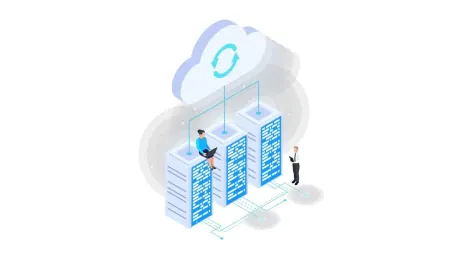The technology landscape continues to undergo significant transformation, primarily driven by the harmonious integration of quantum computing, artificial intelligence (AI), and cloud technologies. At the Google Cloud Next event, various experts delved into the cutting-edge advancements reshaping AI, hybrid, and multicloud strategies. Insights and analyses from prominent industry leaders illuminate the profound impact these innovations are having on the tech industry, defining new phases of growth and efficiency.
AI’s Integration into Cloud Services
John Furrier, co-founder and executive analyst at theCUBE Research, has emphasized that AI now plays a pivotal role in cloud service strategies, reshaping how enterprises utilize cloud technologies. Google’s comprehensive vision of integrating AI throughout its application stack, often referred to as “AI everywhere,” epitomizes this intrinsic transformation. Furrier highlights AI’s pervasive presence across all applications, rendering it a fundamental component that drives operational agility and efficiency within cloud services.
Beyond strategic ideology, practical investments reveal Google’s commitment to realizing this vision. A significant development is the Ironwood TPU technology, a sophisticated innovation intended to drastically enhance computational power while simultaneously reducing operational costs. Google’s expenditure of approximately $45 billion on seventh-generation tensor processing units (TPUs) underscores their dedication to meeting the AI-driven demands of modern enterprises. These TPUs and their distributed network capabilities facilitate vast improvements in handling intricate calculations and consolidating vast data streams, enabling businesses to stay ahead in a competitive environment.
The Rise of Quantum Computing
Savannah Peterson has underscored the resurgence of quantum computing as a transformative force within the tech industry. Quantum computing’s promise to significantly enhance processing speeds and the potential to handle data-intensive calculations with unprecedented efficiency is a major leap forward. Peterson emphasizes that quantum computing’s role in amplifying AI developments and high-performance computing is becoming increasingly vital.
Quantum computing possesses inherent capabilities to address complex computational challenges that classical computing might struggle with. Its ability to process and analyze vast amounts of data at remarkably high speeds ensures that data-intensive operations are conducted with greater precision and reliability. This technological revolution not only optimizes performance but also paves the way for innovative solutions across various sectors, from healthcare to finance, where rapid data processing and analytic capabilities are paramount.
Strategic Integration of AI and Multicloud Services
Paul Nashawaty discusses the strategic implications of integrating AI with traditional and multicloud services, emphasizing the growing need for tools that enhance cross-platform agility. Solutions such as Firebase Studios are pivotal, simplifying the developmental process across various platforms while seamlessly incorporating AI. Nashawaty’s analysis points to how these tools accelerate development timelines and improve overall usability, thus filling skill gaps and enabling enterprises to manage multifaceted tasks more efficiently.
Furthermore, Nashawaty highlights the critical importance of multicloud strategies for achieving operational flexibility and reducing dependency on singular providers. Adopting a multicloud approach has become increasingly prevalent, with a considerable proportion of organizations leveraging multiple cloud services for enhanced interoperability and consistent user experiences. According to Nashawaty, over 94% of firms operate with two or more clouds, and approximately 65% employ four or more. Such strategies ensure that enterprises can dynamically adapt to evolving market conditions and technological advancements, maintaining robust and flexible operations in an increasingly complex landscape.
Bringing AI to Localized Data Environments
The technology landscape is undergoing major transformations, mainly driven by the seamless fusion of quantum computing, artificial intelligence (AI), and cloud technologies. These advancements are reshaping various sectors, ushering in unprecedented growth and efficiency. During the Google Cloud Next event, experts explored significant innovations and their impacts on AI, hybrid, and multicloud strategies. Thought leaders from the tech industry provided detailed analyses and insights into how these developments are changing the game. Their contributions highlighted the tangible effects of these technologies, emphasizing a new era of technological progress. The seamless integration of these systems not only enhances computational power and data processing but also opens doors to novel applications and solutions across diverse industries. From improving machine learning algorithms to optimizing data storage and retrieval processes, the synergy between quantum computing, AI, and cloud platforms is setting the stage for future advancements, thus defining new phases of industry evolution.









